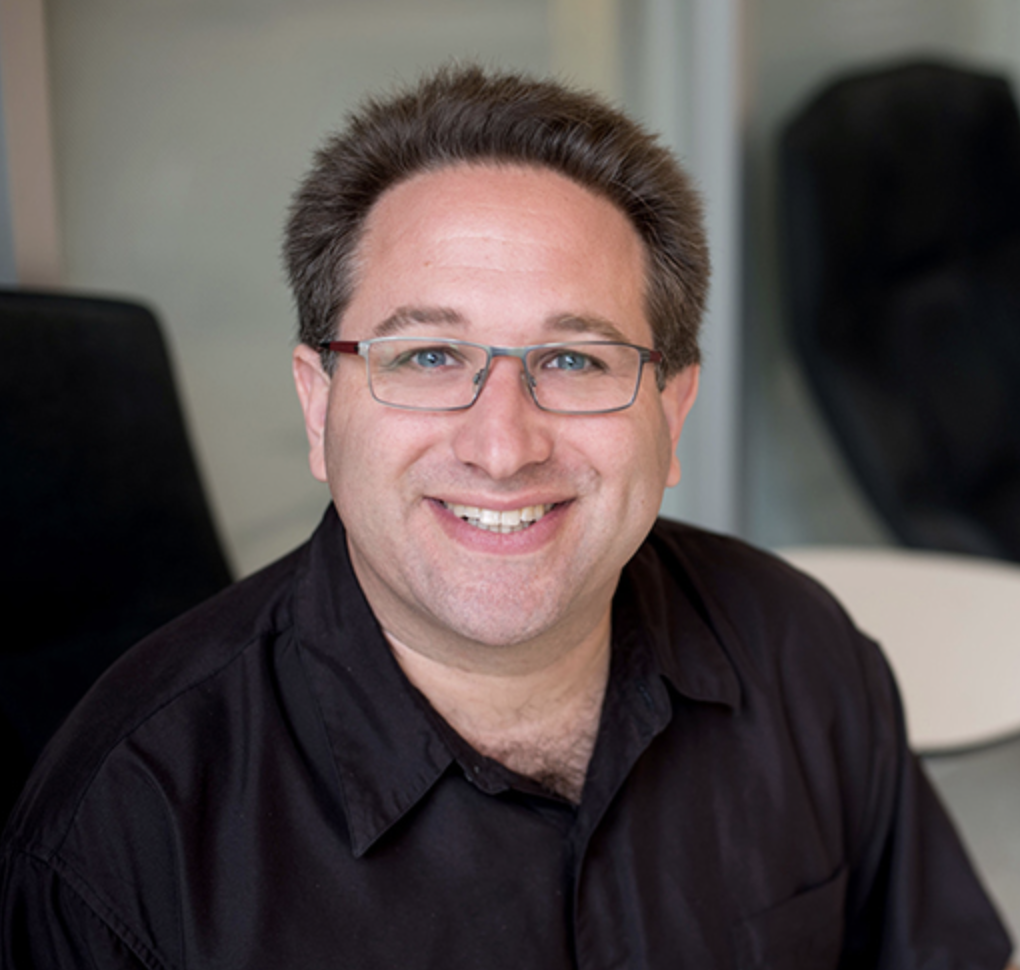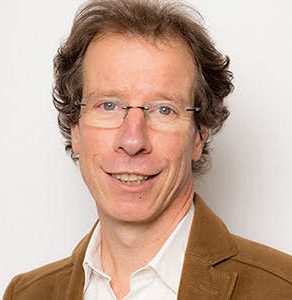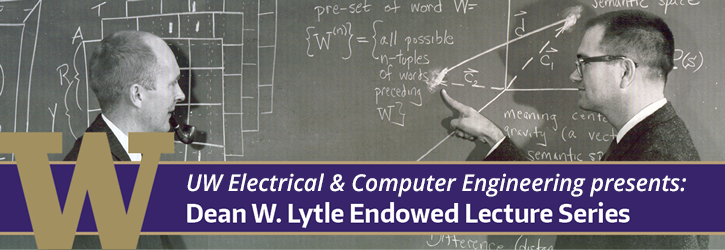
The Dean W. Lytle Electrical & Computer Engineering Endowed Lecture Series is the Department’s premier annual event, featuring internationally renowned researchers in the field of communications, signal processing, control systems and machine learning.
The lectureship is made possible by an endowment established in 2006, the centennial year of the Department, through fundraising efforts led by Louis Scharf, a doctoral student of Dean’s, in collaboration with Dean’s wife, Marilyn Lytle, and support from the Lytle family. Many members of the UW ECE community responded with generous donations to honor Dean Lytle, including his graduate students, his colleagues at Honeywell’s Marine Systems Center, as well as alumni and friends.
Lectures are free and open to the public.
2024–25 Lytle Lecture
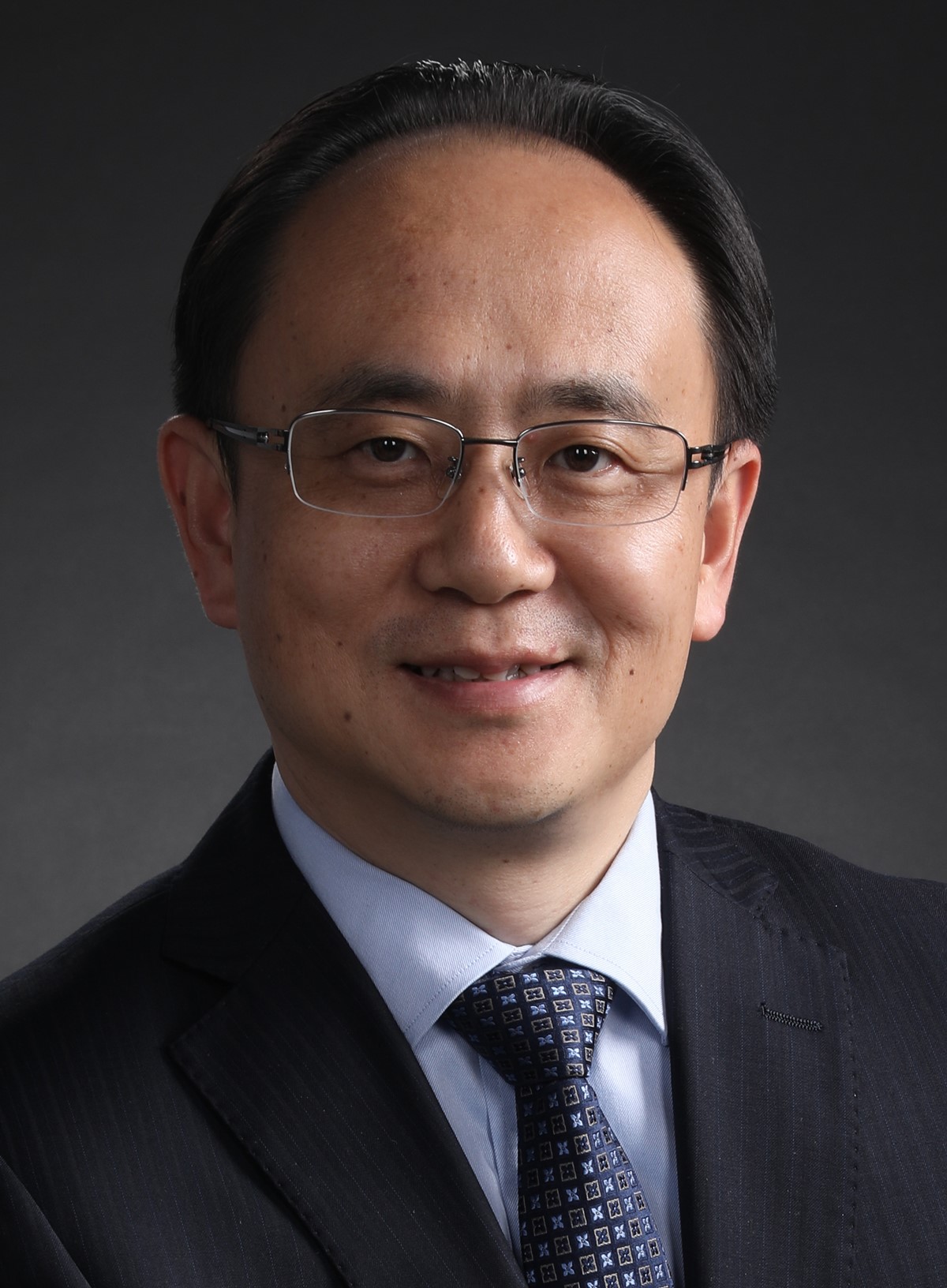
Yong Rui
Corporate CTO and Senior Vice President of Lenovo Group
Thursday, October 17, 2024
Doors open at 3:15 p.m.
Lecture: 3:30 to 5 p.m.
Reception: 5 to 6 p.m.
Paul Allen Center Atrium
RSVP to attend the 2024–25 Lytle Lecture
Watch the lecture video
Lytle Lecture: How to Land AI in the Real World
Abstract
AI has been around for 60 years, and it has experienced several booms and winters. The AI winters were caused by the then fragile nature of AI and the complexity of real-world scenarios. The current AI boom is mainly motivated by Large Models (language, visual, multimodal, etc.) that have much better cross-task generalization ability compared with the previous approaches. However, for AI to truly land in the real world, we need AI to be scalable from one scenario to another, enable it to deal with corner cases and bring business value that is more than the investment. If we look at some of today’s AI forerunners, the answers to the above questions are still unclear. We all know that it takes a long time to turn an innovation into a product. In this talk, we will discuss how to land AI in the real world, from an industry perspective and from a landing perspective.
In the real world, there are many constraints, for example, computation workload, memory consumption, transmission bandwidth, operation cost, data security and user privacy. Usually, a single AI algorithm cannot meet all the, sometimes even conflicting, constraints. Just like in the cloud computing industry there is hybrid cloud, we will discuss the Hybrid AI for the AI industry. Hybrid AI have many dimensions, including model, data, compute, and infrastructure. For example, a hybrid model can simultaneously consider the domain expertise of traditional AI models and the generalization ability of the Large Models. For data, especially to deal with the shortage of training data, many times it needs to use a hybrid of real-world data and augmented data sampled from graphical simulation and/or prior knowledge. From the perspective of compute, heterogeneous computing can efficiently schedule CPU, GPU, NPU, and FPGA to minimize the response latency on the client side and maximize the throughput on the server side. Furthermore, the cloud-edge-device hybrid infrastructure will provide a foundation for AI workload division and distributed AI job collaboration. We will discuss these hybrid dimensions by examining existing and upcoming technologies and products across the AI industry.
Bio
Yong Rui is the Corporate Chief Technology Officer and Senior Vice President of Lenovo Group. He oversees a $2.5B research and development annual budget and directs Lenovo’s technical strategies and R&D directions. Additionally, Rui leads Lenovo Research, which investigates AI, 5G/6G, XR/metaverse, intelligent devices, intelligent computing infrastructure, and smart vertical solutions.
Prior to joining Lenovo, Rui spent 18 years with Microsoft where he held various leadership roles in R&D strategy, basic research, technology incubation, and product development.
A Fellow of ACM, IEEE, AAAS, IAPR, and SPIE, and a foreign member of the Academy of Europe and Canadian Academy of Engineering, Rui is recognized as a leading expert in AI and multimedia analysis and retrieval. He is a recipient of the 2018 ACM SIGMM Technical Achievement Award, 2017 IEEE SMC Society Andrew P. Sage Best Transactions Paper Award, 2017 ACM TOMM Nicolas Georganas Best Paper Award, 2016 IEEE Computer Society Edward J. McCluskey Technical Achievement Award, 2016 IEEE Signal Processing Society Best Paper Award, and 2010 Most Cited Paper of the Decade Award from the Journal of Visual Communication and Image Representation. He holds 112 issued patents, has published four books, 12 book chapters, and 260 refereed journal and conference papers.
Rui is a technology leader who turns technologies into real-life products. At Lenovo, he is one of the key drivers of the 3S (Smart IoT, Smart Infrastructure, and Smart Verticals) strategy, which is transforming Lenovo significantly beyond PCs. Under his leadership, Lenovo has developed award-winning products including ThinkReality A3 (TIME 100 Best Innovations), Lenovo AI/HPC products (HPCWire Award), Lenovo 5G (GSMA Foundry Excellence Award), Lenovo Supply Chain Intelligence (Gartner Global Supply Chain Top 25 Award), Lenovo advanced planning and scheduling system for smart manufacturing (Franz Edelman Finalist), and Lenovo foldable and rollable devices (CES and MWC awards). Rui’s industry leadership has been featured in MIT Technology Review, HPC Wire, Tech Republic, Geek Metaverse, EdgeIR, and Fortune Italy.
Rui received his bachelor’s degree from Southeast University summa cum laude, his master’s degree from Tsinghua University, and his doctoral degree from University of Illinois at Urbana-Champaign (UIUC). He is a Distinguished Alumni of the ECE Department, UIUC.
Previous Lectures
2023-2024
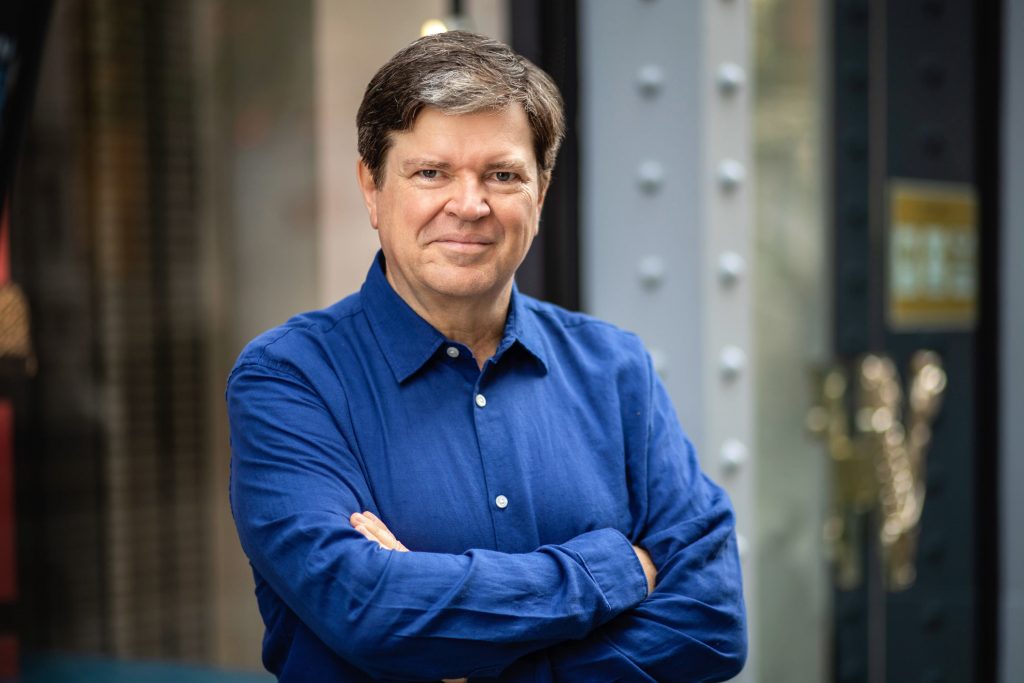
Yann LeCun, VP and Chief AI Scientist, Meta, and Professor, NYU
Wednesday, January 24, 2024
Yann LeCun is VP and Chief AI Scientist at Meta and Silver Professor at NYU affiliated with the Courant Institute, the Center for Data Science, the Center for Neural Science and the Electrical and Computer Engineering Department. He was the founding Director of Facebook AI Research and of the NYU Center for Data Science.
He received the Electrical Engineer Diploma from ESIEE, Paris (1983), and a PhD in CS from Sorbonne Université (1987). After a postdoc at the University of Toronto, he joined AT&T Bell Laboratories (Holmdel, NJ) in 1988, later becoming the head of the Image Processing Research Department at AT&T Labs-Research in 1996. He joined NYU as a professor in 2003, following a brief period at the NEC Research Institute (Princeton). In 2012. He became the founding director of the NYU Center for Data Science. In late 2013, he was named Director of AI Research at Facebook, remaining on the NYU faculty part-time. He held a visiting professor chair at Collège de France in 2015-2016.
His current interests include AI, machine learning, computer perception, robotics, and computational neuroscience. He is best known for his contributions to deep learning and neural networks, particularly the convolutional network model which is very widely used in computer vision and speech recognition applications. He has published over 200 papers on these topics as well as on handwriting recognition, image compression, and dedicated hardware for AI.
LeCun is founder and general co-chair of ICLR and has served on several editorial boards and conference organizing committees. He is co-chair of the program Learning in Machines and Brains of the Canadian Institute for Advanced Research. He has been on the science advisory board of IPAM (since 2008) and the board of trustees of ICERM . He has advised many companies and co-founded startups Elements Inc. and Museami. He is in the New Jersey Inventor Hall of Fame. He is a member of the US National Academy of Sciences, the National Academy of Engineering, and the French Académie des Sciences. He is a Chevalier de la Légion d’Honneur, a fellow of AAAI and AAAS, the recipient of the 2022 Princess of Asturias Award, the 2014 IEEE Neural Network Pioneer Award, the 2015 IEEE PAMI Distinguished Researcher Award, the 2016 Lovie Lifetime Achievement Award, the 2018 University of Pennsylvania Pender Award, and honorary doctorates from IPN, Mexico, EPFL and Université Côte d’Azur.
He is the recipient of the 2018 ACM Turing Award (with Geoffrey Hinton and Yoshua Bengio) for “conceptual and engineering breakthroughs that have made deep neural networks a critical component of computing”.
Lytle Lecture: Objective-Driven AI: Towards Machines that can Learn, Reason, and Plan
Abstract
How could machines learn as efficiently as humans and animals? How could machines learn how the world works and acquire common sense? How could machines learn to reason and plan? Current AI architectures, such as Auto-Regressive Large Language Models, fall short. I will propose a modular cognitive architecture that may constitute a path towards answering these questions. The centerpiece of the architecture is a predictive world model that allows the system to predict the consequences of its actions and to plan a sequence of actions that optimize a set of objectives. The objectives include guardrails that guarantee the system’s controllability and safety. The world model employs a Hierarchical Joint Embedding Predictive Architecture (H-JEPA) trained with self-supervised learning. The JEPA learns abstract representations of the percepts that are simultaneously maximally informative and maximally predictable. The corresponding working paper is available here.
2022-2023
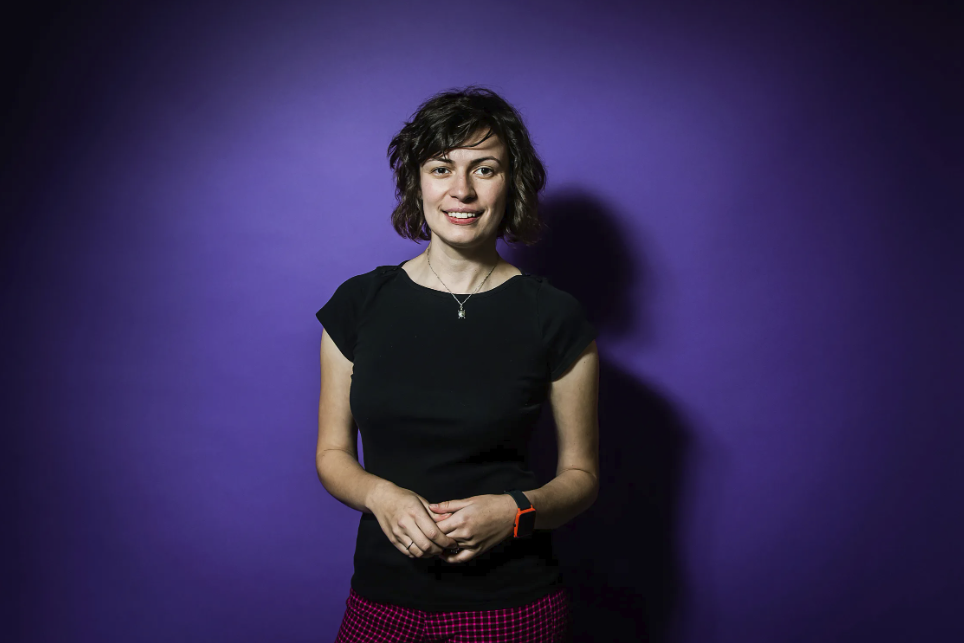
Anca Dragan, associate professor in the EECS Department at UC Berkeley
Monday, November 14, 2022
Anca Dragan is an associate professor in the EECS Department at UC Berkeley. Her goal is to enable robots (and AI agents more broadly) to work for and around people. She runs the InterACT laboratory, where she focuses on algorithmic human-robot interaction: algorithms that move beyond the robot’s function in isolation and generate robot behavior that coordinates well with human actions and is aligned with what humans actually want the robot to do. Anca received her Ph.D. from Carnegie Mellon University’s Robotics Institute. She helped found the Berkeley AI Research Laboratory, and is co-principal investigator of the Center for Human-Compatible AI. She has been honored by the Presidential Early Career Award for Scientists and Engineers (PECASE), NSF CAREER, Sloan, Okawa, ONR Young Investigator Award, MIT TR35, and the IEEE RAS Early Academic Career Award.
Lytle Lecture: Robotics algorithms that take people into account
Abstract
I discovered AI by reading “Artificial Intelligence: A Modern Approach”. What drew me in was the concept that you could specify a goal or objective for a robot, and it would be able to figure out on its own how to sequence actions in order to achieve it. In other words, we don’t have to hand-engineer the robot’s behavior — it emerges from optimal decision making. Throughout my career in robotics and AI, it has always felt satisfying when the robot would autonomously generate a strategy that I felt was the right way to solve the task, and it was even better when the optimal solution would take me a bit by surprise. In “Intro to AI” I share with students an example of this, where a mobile robot figures out it can avoid getting stuck in a pit by moving along the edge. In my group’s research, we tackle the problem of enabling robots to coordinate with and assist people: for example, autonomous cars driving among pedestrians and human-driven vehicles, or robot arms helping people with motor impairments (together with UCSF Neurology). And time and time again, what has sparked the most joy for me is when robots figure out their own strategies that lead to good interaction — when we don’t have to hand-engineer that an autonomous car should inch forward at a 4-way stop to assert its turn, for instance, but instead, the behavior emerges from optimal decision making. In this talk, I want to share how we’ve set up optimal decision making problems that require the robot to account for the people it is interacting with, and the surprising strategies that have emerged from that along the way. And I am very proud to say that you can also read a bit about these aspects now in the 4th edition of “Artificial Intelligence: A Modern Approach”, where I had the opportunity to edit the robotics chapter to include optimization and interaction.
2021-2022
Muriel Médard, Cecil H. and Ida Green Professor in the Electrical Engineering and Computer Science (EECS) Department at MIT
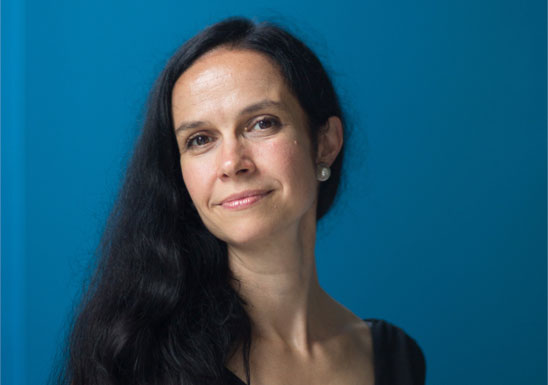
Monday, October 18, 2021
Lytle Lecture, 12 to 1:30 p.m.: “Deviation from the standard — toward opening up 5G telecommunications”
Technical Seminar, 2 to 3 p.m.: “Guessing Random Additive Noise Decoding (GRAND)”
Muriel Médard Abstracts and Bio
2020-2021
Scott Aaronson – Professor, University of Texas at Austin; Director, Quantum Information Center at UT Austin
Thursday, November 19, 2020
Lytle Lecture, 3:30 to 5:00 p.m: “Quantum Computational Supremacy and Its Applications”
Quantum Panel, 10:30 a.m. to 12:00 p.m: “Panel Discussion on Quantum Computing Research”
Kai-Mei Fu (UW ECE and UW Physics professor, UW QuantumX) and industry experts Brent VanDevender, (Pacific Northwest National Laboratory), David Bacon, (IonQ), and Krysta Svore (Microsoft).
2019-2020
Stéphane Mallat — Applied Mathematician, Distinguished Research Scientist, Collège de France, Paris; Flatiron Institute, New York
Colloquium Series Lecture:
Tuesday, Dec. 3, 10:30 to 11:30 a.m., ECE 105: “Interpretable Deep Networks for Classification, Generation and Physics“
Lytle Lecture:
Tuesday, Dec. 3, 3:30 to 5:30 p.m. (doors open at 3:00 p.m.), Paul G. Allen Center Atrium: “Mathematical Mysteries of Deep Neural Networks”
2018-2019

Claire Tomlin — Charles A. Desoer Chair in the College of Engineering, professor in electrical engineering and computer science, University of California Berkeley.
Monday, Nov. 5, 3:30 to 4:30 p.m., HUB Lyceum: “Safe learning in robotics”
Tuesday, Nov. 6, 10:30 to 11:30 a.m., EEB 105: “Towards real-time reachability”
Safe Learning in Robotics
Towards Real-Time Reachability
2017-2018

Robert W. Heath Jr. — Cullen Trust for Higher Education Endowed Professor in the Department of Electrical and Computer Engineering, University of Texas, Austin
Millimeter Wave Communication: From Origins to Disruptive Applications
Millimeter Wave communication using out-of-band information
2016-2017

High-dimensional statistics in light of the spiked covariance model
2015-2016

David Tse — Professor of Electrical Engineering, Stanford University
The Science of Information: From Pushing Bits Over the Air to Assembling World’s Largest Jigsaw Puzzles
Haplotype Phasing, Convolutional Codes and Community Detection
2014-2015

Arogyaswami Paulraj — Emeritus Professor, Stanford University
Evolution of Mobile Air Interface Technology
Road to 5G
2013-2014

Stephen P. Boyd — Samsung Professor of Engineering and Professor of Electrical Engineering, Stanford University
The Science of Better: Embedded Optimization in Smart Systems
Convex Optimization: From Embedded Real-time to Large-Scale Distributed
2012-2013

Alan S. Willsky — Edwin Sibley Webster Professor of Electrical Engineering and Computer Science and Director of the Laboratory for Information and Decision Systems at Massachusetts Institute of Technology
Building a Career on the Kindness of Others
Learning & Inference for Graphical & Hierarchical Models: A Personal Journey
2011-2012

Ingrid Daubechies — James B. Duke Professor of Mathematics, Duke University
Can Image Analysis Detect the Hand of the Master? Wavelets and Applications to the Analysis of Art Paintings
Quantifying the (dis)similarity Between Surfaces
2010-2011

Thomas Kailath — Hitachi America Professor of Engineering, Emeritus, Stanford University
From Radiative Transfer Theory to Fast Algorithms for Cell Phones | Technical Colloquium
2009-2010

Irwin Jacobs — Co-founder, Qualcomm
From Cell Phones to Smart Phones to Smart Books — An Exciting Journey
- Abstract
- Video


